Israel’s brief offensive in Jenin, its biggest military intervention in the West Bank since Operation Defensive Shield in March 2002, was months in the making.
Jenin and its adjacent Palestinian refugee camp, one of 19 such camps in the West Bank, were targeted because they are bastions of armed resistance to the Israeli occupation of the West Bank, incubators of terrorism which spills into Israel, and strongholds of Hamas and Islamic Jihad, which both reject Israel’s existence.

A periodic thorn in Israel’s side, Jenin was the scene of two major battles before Israel’s latest incursion into that northern West Bank town. Israel fought in Jenin during the 1948 War of Independence and again in 2002 as the second Palestinian uprising raged.
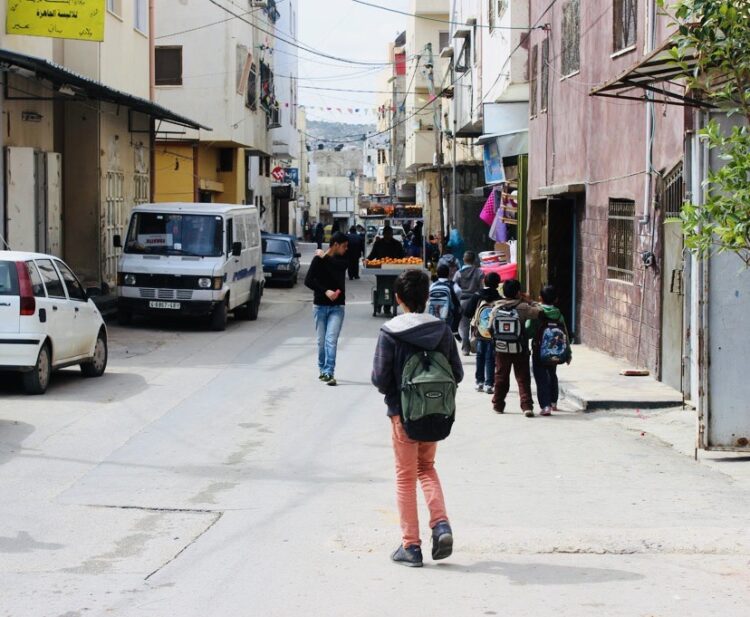
In striking Jenin, Israel deployed more than 1,000 troops, backed by an armada of drones, armor and bulldozers. As they combed through Jenin, Israeli troops found caches of weapons and explosives as well as weapons factories.

Israel killed 12 Palestinians during the fighting, bringing the Palestinian death toll since January to almost 15o.
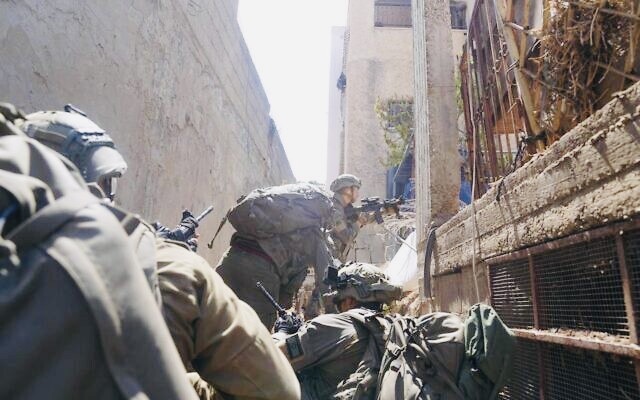
Defence Minister Yoav Gallant justified Israel’s operation by claiming that Jenin had degenerated into “a factory for terror.” He said that Israel had “cut off the weapons manufacturing process, captured thousands of bombs, and destroyed dozens of production sites, workshops and explosives labs.”
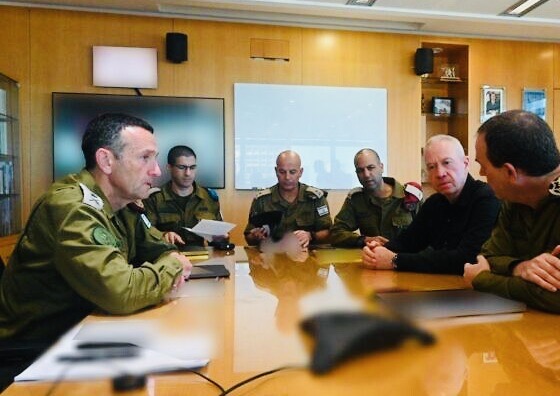
In the early hours of July 5, after some 44 hours of combat, Israeli forces withdrew from Jenin. During the pullout, a 23-year-old Israeli soldier was fatally shot and five rockets from the Gaza Strip were downed by the Iron Dome defence system, prompting the Israeli Air Force to bomb military sites in Gaza.
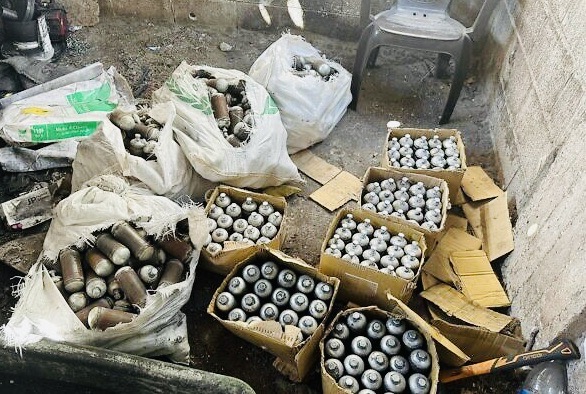
“At this moment, we are completing the mission, and I can say our wide-scale action in Jenin is not a one-time thing,” said Prime Minister Benjamin Netanyahu on July 4. “We will continue (to operate) as necessary to root out terrorism. We will not allow Jenin to go back to being a hotbed of terror.”
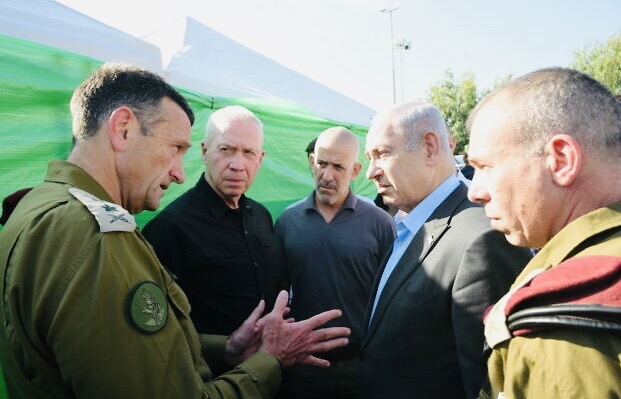
Prior to Netanyahu’s announcement, a Palestinian from the West Bank, the lone wolf Abed al-Wahab Khalaila, 20, rammed his car into a bus stop in Tel Aviv and then began stabbing people. He wounded eight, including a pregnant woman who lost her baby. Khalaila was killed by an armed bystander. Praising Khalaila’s attack, Hamas called it revenge for Israel’s raid into Jenin.

Israel’s campaign in Jenin was driven by a wave of Palestinian terrorism, which erupted on March 22, 2022. Since then, nearly 60 Israelis have been killed. In the past six months, terrorist attacks have claimed the lives of 24 Israelis.
The majority of the attackers have been residents of Jenin and Nablus. They have attacked civilians in Tel Aviv, Bnei Brak, Jerusalem and the West Bank settlements of Ariel and Eli.
Last year, Israel foiled some 500 terrorist attacks in the West Bank — where approximately 500,000 Jews and nearly three million Palestinians live — and arrested about 2,500 Palestinians suspected of being involved in terrorism. During this period, 280 hostile shooting incidents were recorded.
At the same time, there was a steep rise in Jewish settler attacks against Palestinians, with 446 incidents having taken place.
Six months ago, the director of the Israeli army’s Military Intelligence Research Department, General Amit Saar, warned that the escalating violence was bound to grow and would degenerate into Israel’s second most challenging military problem after Iran.
By his reckoning, the Palestinian Authority — which fully or partially governs about 40 percent of the West Bank in coordination with Israel — has failed to properly police its areas of jurisdiction and has lost its legitimacy among young Palestinians, who deeply resent Israel’s occupation and the expansion of Israeli settlements.
Last spring, Israel launched Operation Break the Wave, which was aimed at breaking up terrorist cells in the West Bank, particularly in and around Jenin and Nablus.
This past January, Israeli forces stormed into Jenin, killing 10 Palestinians. In early March, Israel was back in Jenin again, and during the course of its raid, six Palestinians were killed.
Last month, five Palestinians in Jenin were killed in gun battles with Israeli troops. During the fighting, an Israeli armored personnel carrier was ambushed, forcing Israel to call in helicopter gunships to rescue eight wounded soldiers. It was the first time in 17 years that Israel had resorted to such a tactic.
Shortly afterward, in another escalation, Israel deployed a drone to kill three Palestinian combatants who had fired at an Israeli checkpoint in the West Bank.
At around this time, a rocket was launched from Jenin toward Israel, but it exploded soon after takeoff. Rockets are fired regularly at Israel from the Gaza Strip, which is controlled by Hamas, but Palestinians in the West Bank have so far failed to achieve this capability.
With the situation in the West Bank deteriorating, National Security Minister Itamar Ben-Gvir urged the Israeli government to relax open-fire regulations for soldiers and police officers confronting armed Palestinians.
Last month, Avigdor Lieberman, the former defence minister, and the leader of the Yisrael Beytenu Party, accused Hamas of orchestrating Palestinian attacks in the West Bank and urged Israel to launch an “extensive, large-scale military operation” in the northern West Bank.

At the end of June, Israel deployed two more army battalions in the West Bank, bringing to 25 the number of its battalions there.
On July 1, Ziad Nakhaleh, the leader of Islamic Jihad — which fought a five-day mini war with Israel in and around the Gaza Strip in May — announced he was working to establish cells throughout the West Bank. Nakhaleh’s objective is supported by Iran’s supreme leader, Ayatollah Ali Khamenei, who has supplied Islamic Jihad and Hamas with financial and military assistance.
Jenin has long posed a problem to Israel’s security.
During the second Palestinian uprising, Israel attacked the Palestinian refugee camp there during Operation Defensive Shield. Today, the camp houses some 17,000 refugees, the descendants of Palestinians who left their homes in and around Haifa during the 1948 Arab-Israeli war.
Israel took aim at the camp because more than two dozen Palestinian suicide bombers were dispatched to Israeli cities from Jenin.
The Israeli government unleashed the raid after a suicide bomber from Jenin detonated a bomb in Netanya’s Park Hotel. The blast killed 29 Israelis during a Passover meal. One of the wounded Israelis later died of his wounds.

Israel, in striking Jenin, deployed Merkava tanks, AH-1 Cobra helicopters and Caterpillar D-9 bulldozers. During the raid, which lasted from April 1-11, Israel killed 54 Palestinians. Palestinian fighters killed 23 Israeli soldiers, including 13 in an ambush.
During the 1948 war, Israel confronted the Iraqi army — the biggest Arab expeditionary force to come to the aid of the Palestinians — and local Arab irregulars in Jenin between May 31 and June 4.
According to Israeli historian Benny Morris, Israeli forces, commanded by Mordechai Maklef, took on the Iraqis and their allies in Jenin to preempt a possible Iraqi push toward the Jerzreel Valley or to the Mediterranean Sea through Israel’s narrow waist near Netanya.
Israel lost 34 soldiers in these battles and suffered “a nasty defeat,” he writes in 1948: The First Arab-Israeli War. Although victory eluded Israel, “the nightmare scenario of an Iraqi thrust to the Mediterranean … had been averted.”
It is clear, as Netanyahu said yesterday, that Israel and its Palestinian foes will fight yet more bloody battles in Jenin and elsewhere in the West Bank. The existential struggle between the Zionist movement and Palestinian nationalism still burns brightly after more than a century.
Yet another certainty is that there is no real military solution to the impasse. This protracted and costly conflict can be resolved only by political means, through a negotiated two-state solution. Until such time, Israel will live by the sword.
